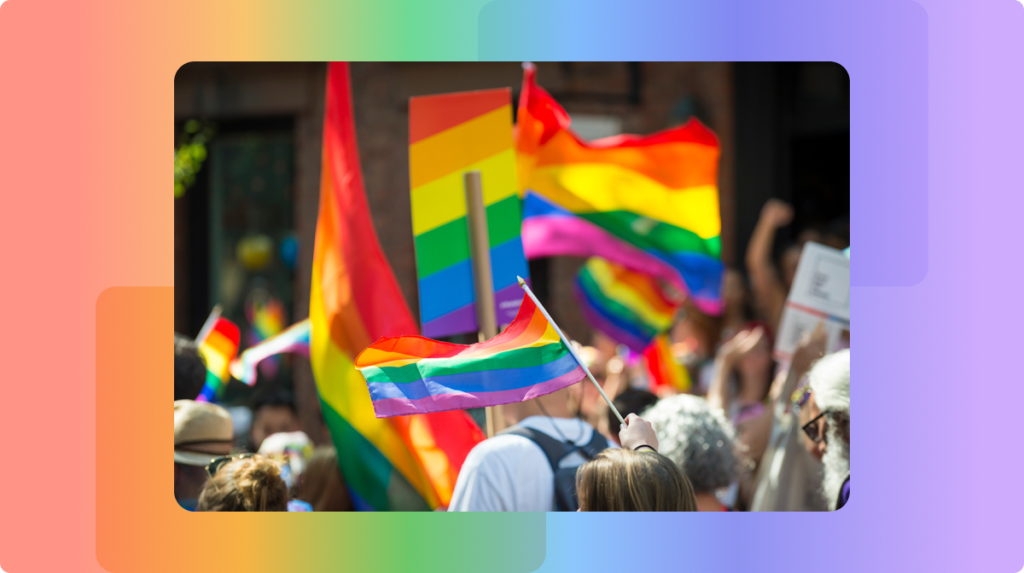NOCD Therapists are committed to fostering resilience for our LGBTQIA+ members, through tools like radical acceptance and learning to resist compulsive rumination.
Stress can take an enormous toll on your mental health, especially if you’re living with OCD. For marginalized communities who may already be facing more significant challenges—like LGBTQIA+ people with OCD—it can be especially difficult to navigate periods of additional overwhelm. To help support you, we asked two NOCD Therapists who identify as part of the LGBTQIA+ community for their advice on managing OCD symptoms during periods of stress.
Michelle Anderson, MSW, LCSW recommends practicing radical acceptance, a distress tolerance skill that helps you deal with things that are out of your control. “You can’t change the fact that you have OCD, but what you can do is keep focusing on what you have control over,” she explains. Anderson clarifies that acceptance means acknowledging and processing the reality of a situation—it doesn’t require you to be ok with it.
You can begin practicing radical acceptance by first observing your thoughts and acknowledging your feelings without judgement. Know that you may have “what if” questions that may be bringing up feelings of doubt and uncertainty.
If you’ve caught yourself ruminating—or seeking answers to questions that don’t have answers—you’re not alone. As Devon Garza, MC, LPC, LPCC explains, “Uncertainty is ever present and always constant. So focus on what you do know, and how you will tolerate the uncertainty.”
Garza suggests asking, “How can I take care of myself at this moment?” When we’re stressed, it seems like there’s no time for self-care, but this is often when it is most important. Tune in to what you need most at this moment, whether that’s rest, time with loved ones, or checking in with your therapist. Garza also recommends setting healthy boundaries with your devices—limiting your time on social media, turning off notifications, and taking a break from reading the news.
Both Anderson and Garza emphasize the importance of turning to the LGBTQIA+ community for support. “I think anger is valid, but it’s important to find meaningful ways to involve yourself,” says Anderson. “What can you do locally to help other people? Can you give back to your community?”
For friends and family of LGBTQIA+ people with OCD, Garza recommends creating space and acknowledging your loved one’s anxiety without providing reassurance, which may feed into compulsions and make their anxiety worse. Instead, Garza recommends asking, “‘Can we talk about the thing that’s making you anxious?’ You can create room for them to speak it aloud, and interrupt their rumination without saying ‘Let’s talk about it so I can tell you everything is going to be fine.’”
Anderson points to the historical resilience of the LGBTQIA+ community as a source of strength and inspiration. “As queer people, there’s so much that we have already survived and gone through. But we are thriving,” she says. “We’re continuing.”
For additional support, check out these resource hubs from trusted sources:
- The Trevor Project: LGBTQ+ Friendly Resources for Mental Health Support
- GLAAD: LGBTQ Resource List
- PFLAG: Support Hotlines

